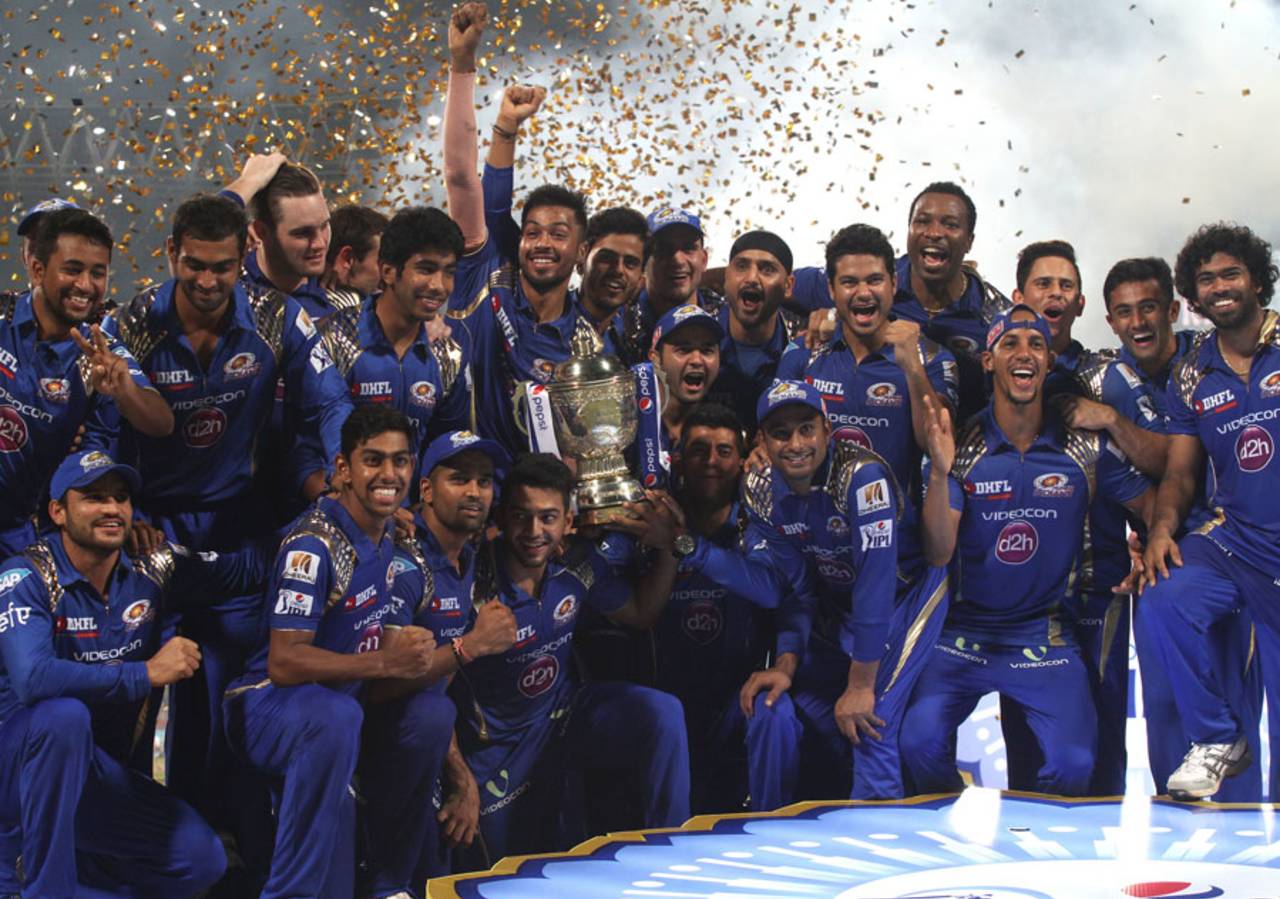Opinion divided over BCCI's home title rights valuation
While the BCCI was pleased with a 20% appreciation in its home series title rights sponsorship deal, a comparison with a previous multi-year deal indicates a slump in valuation
Amol Karhadkar
Jul 31, 2015, 4:16 PM

Brand experts feel that the negative publicity around the IPL, as well as the tournament's ability to cannibalise sponsors away from international cricket, has affected the BCCI's title rights valuation • BCCI
On Thursday, the BCCI sold its home series title rights for the next four years to ecommerce firm, Paytm for Rs 203.28 crore (US $31.7 million), and was pleased with a 20% appreciation in value compared to the 2014-15 season. A look at the board's previous long-term deal, however, indicates a slump in valuation.
For the last two years, India played very few home matches and the BCCI floated annual tenders for home series title rights. The board's previous multi-year deal was with the telecom company Bharti Airtel between October 2010 and March 2013, for a whopping Rs 3.33 crore per match.
In comparison, Paytm will pay Rs 2.42 crore per match between October 2015 and September 2019. While the BCCI claims a 20% hike over the last year's bidding amount, Paytm's bid amount is in fact more than 27% lower than the sum paid by Airtel.
Industry experts are divided over the primary reason for the slump in valuation, with some hinting at the impact of the recent IPL corruption scandal, while others suggesting it is an expected correction.
"This is the combined toll that Indian cricket in general needs to pay for the continuous erosion of stakeholder trust of the IPL under the BCCI's watch," M Unni Krishnan, founder of LongBrand, a long-term value creation advisory, said. "In my view, this is only the tip of the iceberg as the entire ecosystem of cricket rots away from its core outwards.
"The rotten core of BCCI, the steward of Indian cricket, has been laid bare to all stakeholders and the public at large. Consequently, the game itself and its fan following is coming under pressure. The IPL, which was once regarded as a valuable brand in itself and for BCCI, is turning out to be a liability for Indian cricket."
Indranil Das Blah, chief operating officer of CAA Kwan, a talent management agency, diferred with Krishnan. Blah felt the drop in valuation is actually a correction which was overdue.
"It's actually a correction. What Airtel was paying was way beyond the market rate. That was more of an aberration," Blah said. "It needed a correction. They did pay way too much. That was also a time when the Indian team was at its peak. Dhoni, the captain, was at his best. Sachin was still around and doing extremely well. All that played a huge role back then. Still I would say it was in need of a correction, which has reflected in the Paytm deal."
Interestingly, Paytm was the only new interested bidder besides Micromax, a mobile phone manufacturer who held the rights for the 2014-15 season. Micromax, who paid Rs 2.02 crore per match in the previous season, was disallowed from the bidding process after the company's documentation was declared invalid. The fact that only two organisations - neither one a big market player in India - bid for the rights shows that interest in sponsoring international cricket matches in India has been affected. The IPL is being seen as one of the factors for this drop in interest.
"The drop in interest among bidders is a clear sign of the diminishing value of cricket and the unsavoury associations which have built around it through IPL," Krishnan said. "The folks who declared that any kind of PR is good PR can eat their words."
The BCCI, however, pointed out that the final bid by Paytm was almost 45% higher than the base price of Rs 1.68 crore per match, an indication that the market has not lost its faith in Indian cricket.
Blah agreed that the controversies the BCCI has found itself in over the last two years have left a few companies reluctant to support the Indian team, but he pointed out other factors as well.
"I don't think it's completely true that the negative publicity has affected sponsorship. I would say it has cannibalised itself due to the nature of IPL," Blah said. "A lot of sponsors will obviously be happy to be associated with the IPL. Irrespective of all the controversies surrounding the tournament, the fact is that the IPL works. And the IPL is not cheap, so the big brands have started preferring to wait for the IPL.
"Besides, few and few [audiences] are watching bilateral series. Cricket has sort of cannibalised around Twenty20 leagues all over the world, so the sponsors have plenty of options and they can't be faulted for drifting away from international cricket."
While Krishnan remained sceptical about whether the deal would turn out to be fruitful for both the BCCI and Paytm, Blah is confident the board will benefit from the deal. "Well, the BCCI should be very, very happy with it, especially on the back of all the negative publicity, the team's inconsistent performance of late and change of guard in terms of personnel in the team," Blah said. "As for Paytm, it will be too early to judge. Whether they have overpaid or not will be determined based on the team's performance over the next four years."
Amol Karhadkar is a correspondent at ESPNcricinfo